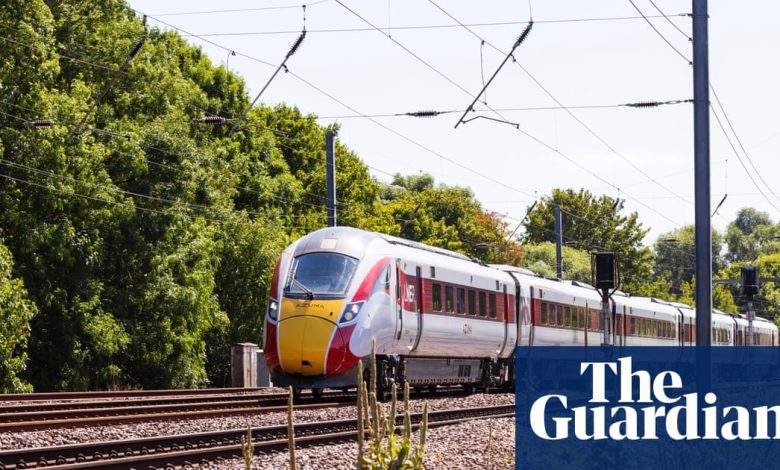UK has competitive edge on a third of green products, thinktank finds | Green economy

The UK has a competitive advantage over the rest of the world in a third of the green products and services, giving it a lead in the race to reach net zero, according to an upbeat report by a left-of-center think tank.
Firms are well positioned to produce many of the most important green products – from electric trains to components for heat pumps – despite the 40-year decline that left UK industrial base smaller than many of its competitors, the Institute for Public Policy Research (IPPR) said.
The UK is particularly strong in manufacturing products and components used to monitor, measure and analyze industrial processes that will play a big role in the decarbonisation of the economy – such as the electricity grid and renewable energy generation.
To expand the number of industries capable of producing products that will help achieve net zero, ministers will need to develop a mechanism to support businesses that want to expand the scope and complexity of what they produce.
The report says aging industrial plants should be “greened” rather than closed government subsidies will allow the UK to produce less carbon-intensive steel and avoid over-reliance on imports that have traveled thousands of miles.
The transfer of factories to make vital components will shorten supply lines, making the UK “more resilient to future shocks” while reviving the economy.
George Deeb, head of IPPR’s Center for Economic Justice, said the geographical spread of industries prepared to support the transition to net zero meant the government could equalize regions at the same time.
“Over the past 30 years, we’ve fallen sharply behind our global competitors in the amount and types of things we actually produce,” Dib said. “It’s bad for jobs, it’s bad for living standards, it’s bad for our security — and it’s bad for our long-term economic strength as a country.”
“Yet UK manufacturers still have a competitive advantage in producing some of the products that are vital to a net zero economy, and with the right government support we have the potential to be a world leader in many others.”
Dib said all the key products needed to achieve net zero were already in place, allowing ministers to use the report as a crib sheet to identify areas in need of Whitehall subsidies.
To assess the UK’s green strengths, the IPPR has identified a set of 143 products that can be linked directly to technologies and steps needed to deliver net zero. The UK was found to have a comparative advantage over international rivals in a third.
However, a separate report by MPs published on Wednesday argued that the UK is ill-prepared to build climate-resilient infrastructure without a huge investment in upskilling the workforce.
The all-party Public Accounts Committee (PAC) of MPs has found that skills gaps in the UK workforce are being compounded by competition from major global development projects.
“Project management and design are also problem areas and [a lack of] in particular qualified professionals in senior positions,” the parliamentary spending watchdog said.
Its report found that 16,000 project professionals should be accredited by the government’s Academy of Project Management to carry out vital work, but only 1,000 have so far done so.
MPs found that “unprecedented” investment was taking place across the country rail, road and energy sector with little control by ministers or evaluation by civil servants.
The report concluded: “Only 8% of the £432 billion spent on major projects in 2019 had robust impact assessment plans in place, and around two-thirds had no plans at all. This is despite the fact that high-quality evaluation is important to provide evidence of what works, demonstrate value and make the case for or against further investment.
“Decisions are made in the absence of evidence, putting the value of money at unnecessary risk.”




